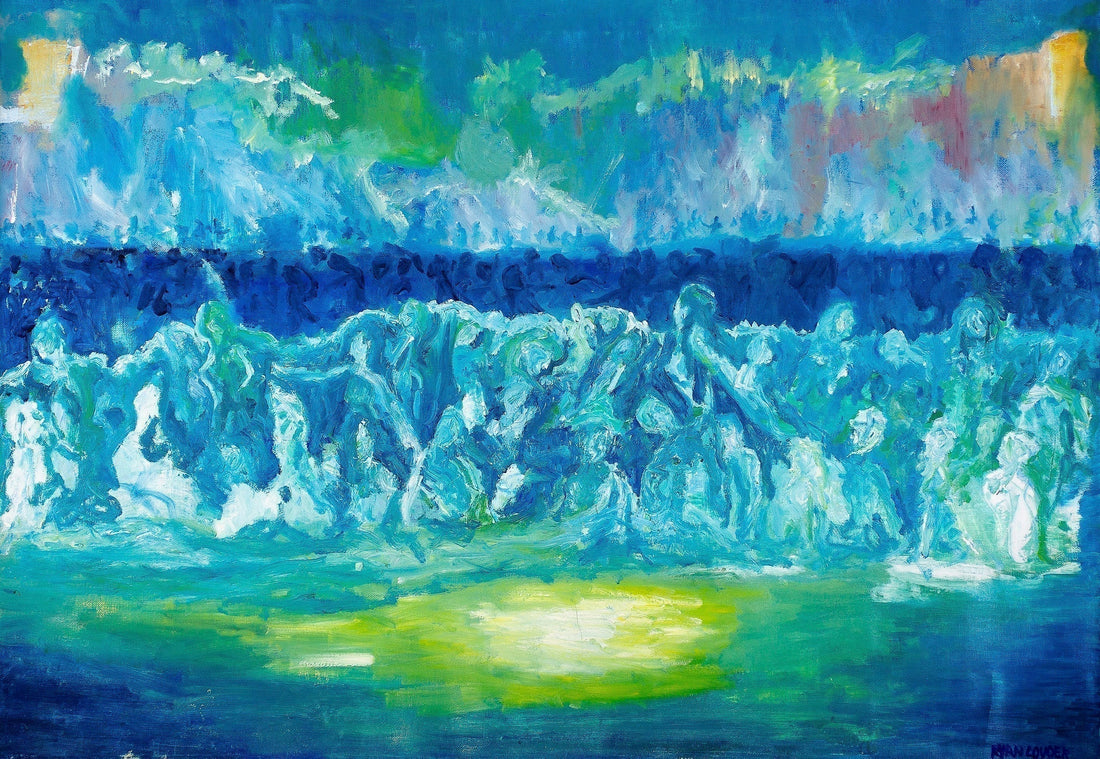
The Universe as a Participatory System: A Metaphysical Framework for Quantum and Cosmological Anomalies
Share
What If the Universe Only Exists When We're Looking?
Look, I know this sounds crazy, but hear me out. What if the universe isn't some massive machine grinding away in the background, but more like a really sophisticated system that only renders what we need to see, when we need to see it? Like a cosmic video game that loads the scenery as you walk through it.
I've been thinking about this because there are some seriously weird things happening in physics that nobody can explain. We know about dark matter and dark energy—they make up about 95% of everything that exists. We can see their effects everywhere, but we have absolutely no idea what they actually are. It's like knowing someone's in the room because you can see their shadow, but never being able to find the person casting it.
The Quantum Clue: Electrons That Can't Make Up Their Mind
Here's where it gets interesting. You know how electrons do that bizarre thing where they act like waves until you try to measure them, then suddenly snap into being particles? That's not just some quirky physics fact—it might be the biggest clue we have about how reality actually works.
Think about it this way: the electron isn't "deciding" to be a wave or particle. It literally doesn't exist as either until something conscious looks at it. Before that moment, it's just pure possibility—mathematical potential floating in space. The instant we observe it, boom, reality crystallizes into something definite.
What if that's not a bug in the system? What if that's the whole point?
The Universe as the Ultimate Efficiency Engine
This would explain so much. Why are quantum particles so weird? Because they're showing us the universe in its unrendered state—pure information waiting to become reality. Why can't we find dark matter particles even though we know they're there? Maybe because they're not actually particles at all, but system processes that create the effects we observe.
And get this—the James Webb telescope is finding galaxies that are way more complex and mature than they should be, given how young they are. Under normal physics, these galaxies shouldn't have had time to develop. But if the universe renders complexity on demand based on our ability to observe it? That makes perfect sense.
Consciousness: Not Just Along for the Ride
This flips everything we think we know about consciousness. Instead of being some accident that emerged from dead matter, consciousness becomes the thing that makes reality real in the first place. We're not passive observers of a pre-existing universe—we're active participants in creating it moment by moment.
It's like the universe and consciousness are locked in this cosmic dance. The more sophisticated our tools get, the more complex the universe reveals itself to be. It's always one step ahead, always giving us more questions than answers. And maybe that's intentional.
Recent data from the Dark Energy Spectroscopic Instrument shows that dark energy might be changing over time, which completely breaks our models. But if you think of dark energy as a dynamic system parameter rather than a fixed constant, it starts to make sense. The universe is responding to our questions by getting more interesting.
Why This Beats Our Current Theories
Look, I'm not trying to throw out all of physics here. The math works, the observations are solid, and the predictions hold up. But our explanations for why any of this works are honestly pretty terrible.
We've spent decades looking for dark matter particles and found nothing. String theory requires dimensions we can't detect and makes predictions we can't test. We keep inventing new particles and forces to explain every new discovery, like cosmic duct tape holding together a theory that's falling apart.
The Rendering Principle is simpler. Instead of adding more invisible stuff to explain what we see, it suggests that what we see is exactly what gets rendered for us to see. One unified explanation for quantum weirdness and cosmic mysteries.
The Implications Are Mind-Bending
If this is right, then consciousness isn't some freak accident in a dead universe—it's built into the foundation of everything. We're not separate from reality; we're part of the process that creates it.
This doesn't make us gods or anything. If anything, it makes us more humble. Every time we think we've figured something out, the universe cranks up the complexity another notch. It's like it's designed to keep us curious, to prevent us from ever getting too comfortable with our understanding.
Maybe that's the point. Maybe the universe isn't just a physical system—maybe it's a learning system, and we're both the students and the teachers.
And if that's true, then every observation we make, every question we ask, every moment of genuine curiosity isn't just learning about reality—it's participating in creating it.